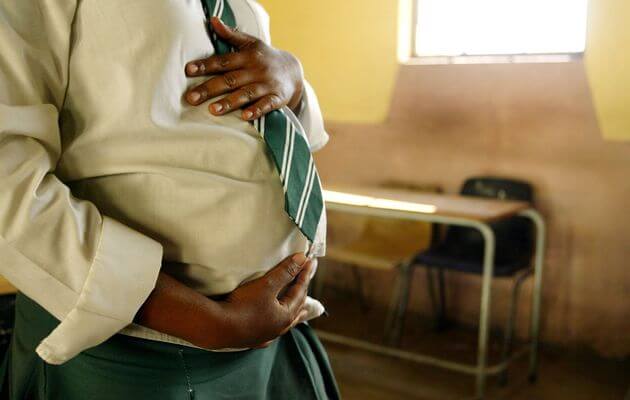
WHEN Delight Ziwacha was 16, she did not know one could get pregnant after having unprotected sex only once. A friend told her that it had to happen multiple times.
So, after experimenting with alcohol during a high school soccer tournament, she had unprotected sex with her 17-year-old boyfriend. A month and a half later, she found out she was pregnant.
“It only happened that one time.”
Ziwacha, now 19, does not remember ever receiving any sex education in school. The little she knew was from conversations with friends.
But Zimbabwe does have a Comprehensive Sexuality Education Programme, meant to equip young people like Ziwacha with knowledge about sex and help reduce teenage pregnancies, which have been soaring in the country, particularly during the coronavirus pandemic. Government data shows that in January and February 2021, nearly 5 000 girls age 17 and under got pregnant.
The trend has called the current sex education offered in schools into question. Some say it falls short and are asking the government to redesign it, while others want the curriculum scrapped altogether, saying it encourages young people to engage in early sex.
The Primary and Secondary Education ministry introduced Zimbabwe’s Comprehensive Sexuality Education Programme in 2015 but it's not a stand-alone subject. In secondary school, it is a topic under the umbrella of the Guidance and Counselling syllabus along with numerous other topics such as human growth and development and norms and values. In primary school, it is under the Family, Religion and Moral Education syllabus.
Munashe, a primary schoolteacher who requested to use only his first name for fear of retribution, blames the curriculum design for the steady increase in the number of teenage pregnancies. The design, he says, is evidence of the government’s lack of seriousness in sex education.
“Maybe if treated as a subject on its own, then it will be given enough time and become impactive on behaviour change of youths towards sexual activities.
The government isn’t entirely to blame, Munashe says. He admits that some schools have neglected sex education. Some do not teach it or examine it. Other schools, he adds, leave the responsibility of sex education to non-profit organisations.
“There are organisations that come and teach learners in schools, but in the absence of funding, no sex education happens.”
Tawanda, a secondary schoolteacher, who also prefers to go by his first name for fear of retribution, agrees with Munashe.
“The challenge is it [sex education] is not examinable. Therefore, it doesn’t contribute to the learners’ passes.”
A guidance and counselling teacher, Tawanda sees a pressing need for schools to take sex education seriously and assess it for it to be effective.
Schools can work only with the available resources, and this is part of the problem. Munashe says there is not enough government funding to implement the sex education curriculum.
But Taungana Ndoro, the director of communications and advocacy at the Primary and Secondary Education ministry, says the government already provides a budget for this.
Panashe Sithole is an 18-year-old Member of Parliament in Zimbabwe’s Junior Parliament, a parallel body under the Zimbabwe Youth Council. She sees the need for a complete overhaul of the current sex education programme.
“It should be put as a stand-alone subject.”
Sithole, who is in secondary school, says sex education is rarely taught in her school. While the Junior Parliament advocates for issues affecting young people, the group doesn’t convene often.


























